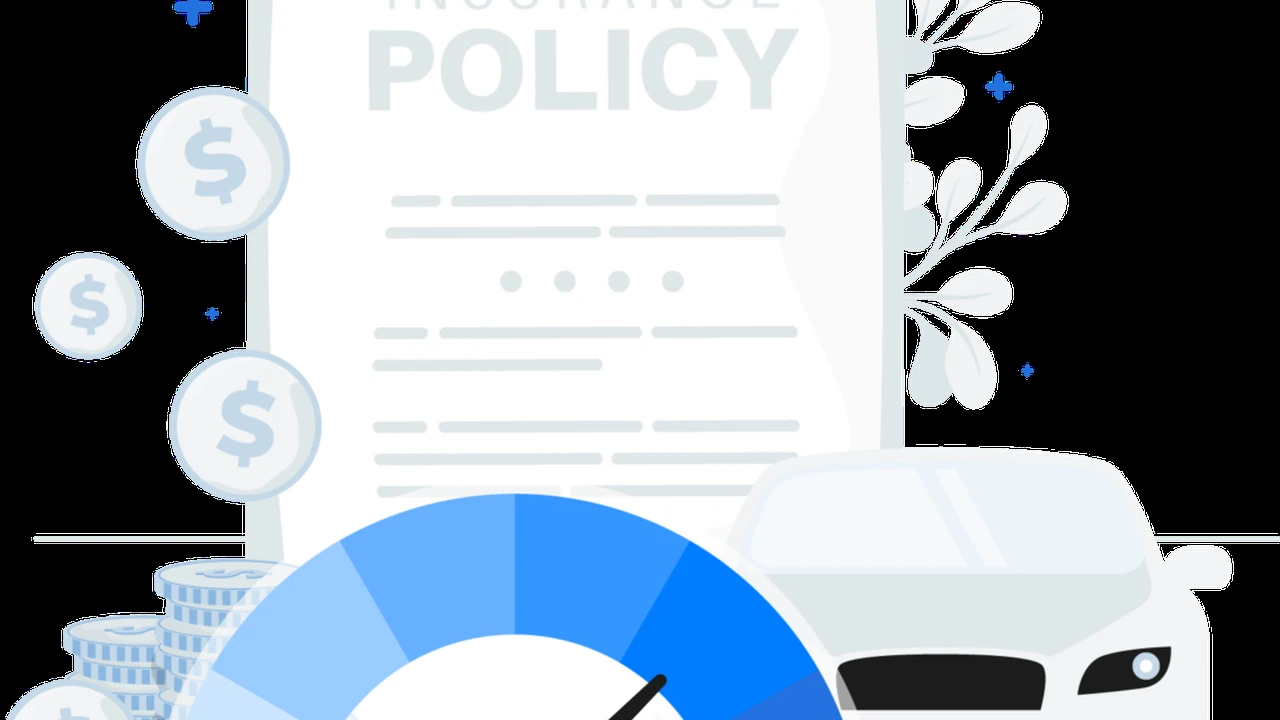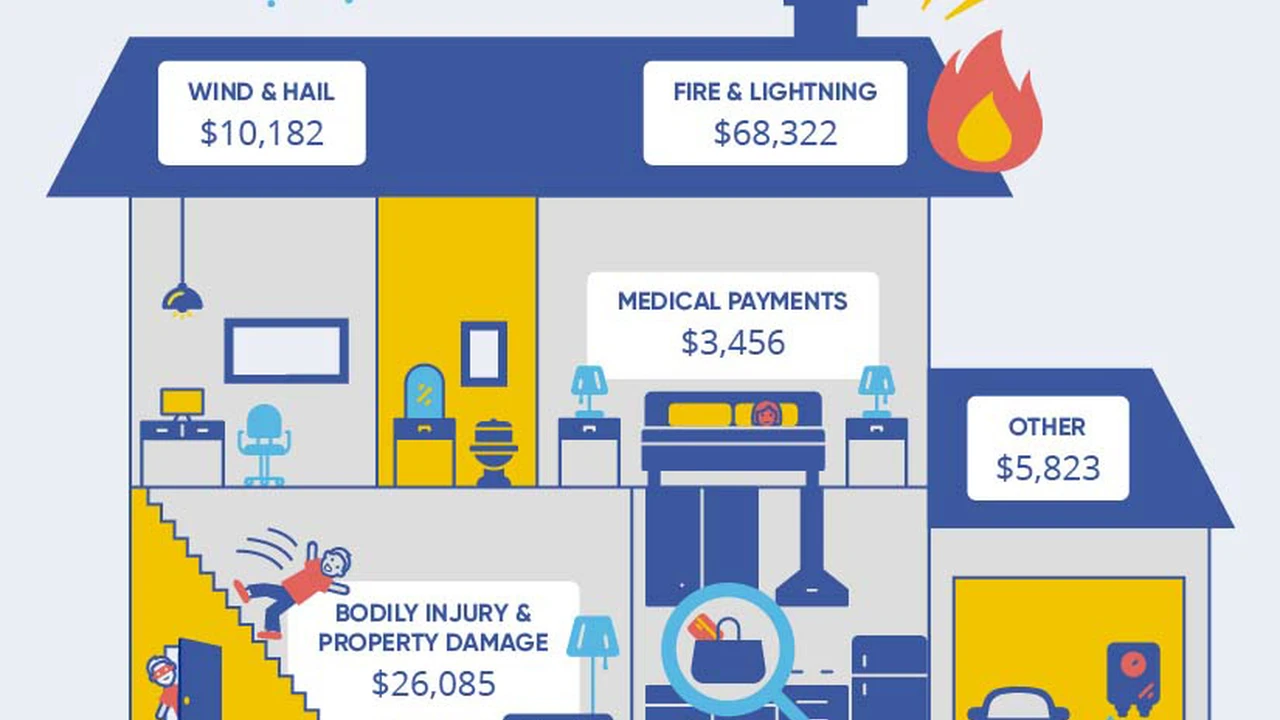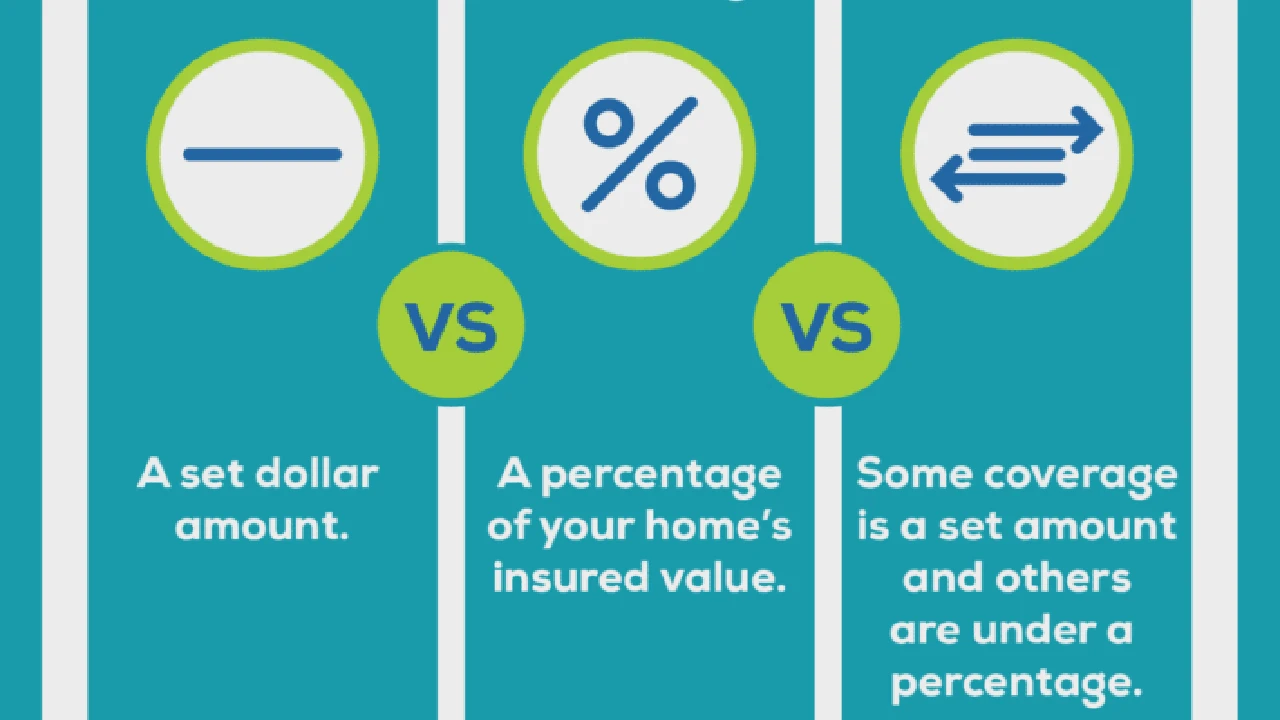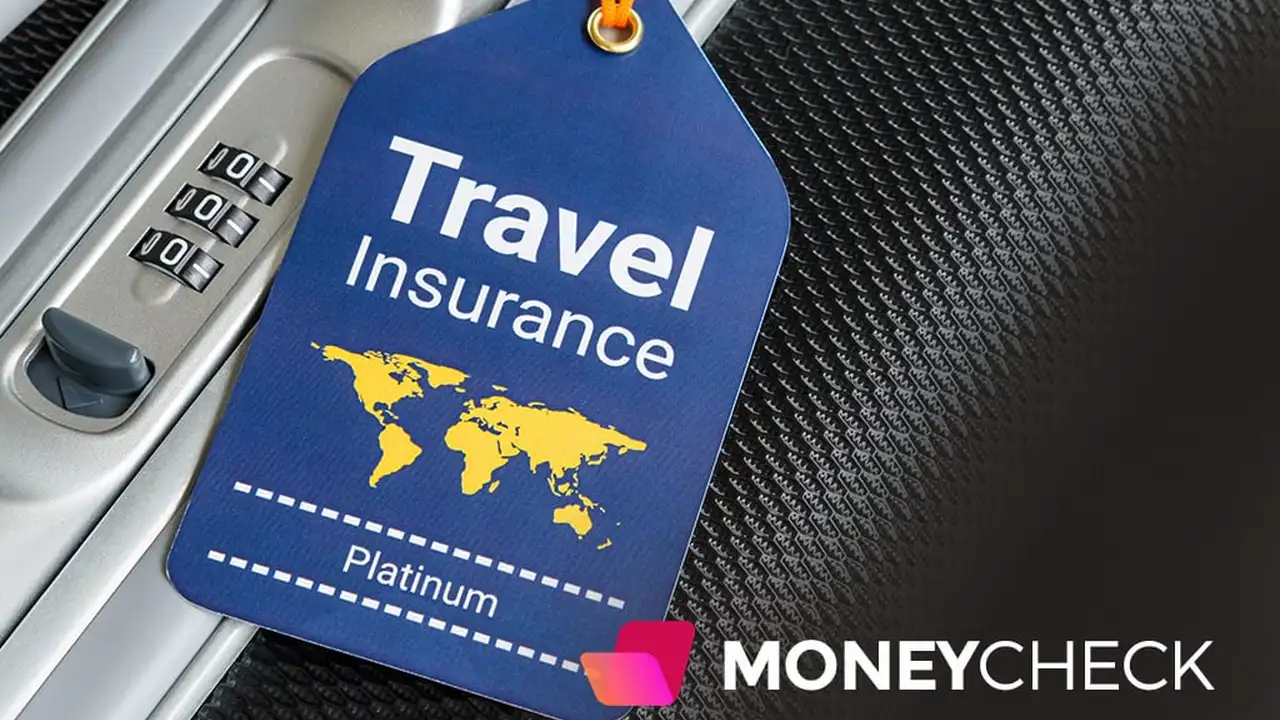Auto Insurance and Credit Score_ How It's Used

Understanding the Connection Between Auto Insurance and Credit Scores
So, you're probably wondering, what exactly does my credit score have to do with my car insurance rates? It might seem a little strange at first, but insurance companies often use credit scores as one factor in determining your risk level as a driver. The logic is that people who manage their finances responsibly are also more likely to be responsible drivers. While this isn't always the case, statistically, there's a correlation.
Think of it this way: insurance companies are in the business of predicting risk. They want to figure out how likely you are to file a claim. Credit scores, believe it or not, can give them some insight into your overall behavior and responsibility levels. A good credit score can signal to them that you're less likely to be involved in accidents or make fraudulent claims. Conversely, a low credit score might raise red flags.
How Auto Insurance Companies Use Credit Information
Now, let's dive a bit deeper into how insurance companies actually use your credit information. They don't typically just look at your raw credit score. Instead, they often use a credit-based insurance score, which is a specific score derived from your credit report. This score is designed specifically to predict insurance claims. It takes into account various factors from your credit report, such as:
- Payment history: Do you pay your bills on time?
- Outstanding debt: How much debt do you have relative to your credit limits?
- Length of credit history: How long have you been using credit?
- Types of credit used: Do you have a mix of credit accounts, like credit cards and loans?
- New credit: Have you recently opened a lot of new credit accounts?
Insurance companies then use this credit-based insurance score, along with other factors like your driving record, age, and the type of car you drive, to calculate your insurance premium. It's important to note that not all insurance companies use credit scores, and the impact of your credit score can vary depending on the insurer and the state you live in.
States Where Credit Scores Cant Be Used for Auto Insurance
It's also crucial to know that some states have laws that restrict or prohibit the use of credit scores in auto insurance pricing. These states include:
- California
- Hawaii
- Massachusetts
- Michigan (limited restrictions)
If you live in one of these states, your credit score won't be a factor in determining your auto insurance rates. This is great news for people with less-than-perfect credit in those states!
The Impact of Good Credit on Auto Insurance Rates
Okay, so you have a great credit score. What does that mean for your auto insurance rates? Well, generally speaking, a good credit score can lead to significantly lower premiums. Insurance companies see you as a lower risk, and they reward you with lower rates. The exact amount you can save will vary depending on the insurer and your individual circumstances, but it can be substantial.
For example, someone with excellent credit might pay hundreds of dollars less per year for auto insurance than someone with poor credit. This can really add up over time, so it's definitely worth working on improving your credit score if you want to save money on car insurance.
The Impact of Bad Credit on Auto Insurance Rates
On the flip side, if you have a poor credit score, you're likely to pay higher auto insurance rates. Insurance companies see you as a higher risk, and they charge you more to compensate for that risk. This can be frustrating, especially if you're already struggling financially.
Unfortunately, having bad credit can create a vicious cycle. Higher insurance rates make it harder to afford car insurance, which can lead to lapses in coverage. Lapses in coverage can then further increase your rates in the future. It's important to take steps to improve your credit score if you want to break this cycle and lower your auto insurance costs.
How to Check Your Credit Score and Credit Report
The first step to understanding how your credit score is affecting your auto insurance rates is to check your credit score and credit report. You're entitled to a free copy of your credit report from each of the three major credit bureaus (Equifax, Experian, and TransUnion) once per year. You can request these reports at AnnualCreditReport.com.
It's important to review your credit reports carefully for any errors or inaccuracies. If you find any, you should dispute them with the credit bureau immediately. Correcting errors on your credit report can help improve your credit score and potentially lower your auto insurance rates.
You can also check your credit score through various online services, credit card companies, or banks. Some of these services offer free credit scores, while others charge a fee. Keep in mind that there are different credit scoring models, so the score you see from one source might not be the same as the score used by your auto insurance company. However, it will still give you a general idea of your creditworthiness.
Tips for Improving Your Credit Score for Lower Auto Insurance Rates
If your credit score isn't where you want it to be, don't despair! There are several steps you can take to improve it. Here are some tips:
- Pay your bills on time: This is the most important factor in your credit score. Set up automatic payments or reminders to ensure you never miss a due date.
- Reduce your debt: Pay down your outstanding debt, especially high-interest debt like credit card balances.
- Keep your credit utilization low: Try to keep your credit card balances below 30% of your credit limits.
- Avoid opening too many new credit accounts: Opening too many new accounts in a short period of time can lower your credit score.
- Become an authorized user on someone else's credit card: If you have a friend or family member with good credit, ask if you can become an authorized user on their credit card. This can help you build credit history.
- Consider a secured credit card: If you have trouble getting approved for a traditional credit card, consider a secured credit card. These cards require a security deposit, but they can help you build credit.
Improving your credit score takes time and effort, but it's definitely worth it in the long run. Not only will you save money on auto insurance, but you'll also qualify for better interest rates on loans and credit cards.
Shopping Around for Auto Insurance with Credit Score Considerations
Even if you have a good credit score, it's still important to shop around for auto insurance to find the best rates. Different insurance companies weigh credit scores differently, so you might find that one insurer offers you a much better rate than another, even with the same credit score.
Get quotes from multiple insurance companies and compare their rates and coverage options. Be sure to ask about any discounts you might be eligible for, such as discounts for being a safe driver, having multiple cars insured with the same company, or bundling your auto and home insurance.
Auto Insurance Companies That Consider Credit Score Favorably
While it's impossible to say definitively which auto insurance companies will offer the best rates based on your credit score, some insurers are known for giving more weight to credit scores than others. These companies often include:
- Progressive
- GEICO
- State Farm
- Allstate
However, it's important to get quotes from several different companies to see which one offers you the best deal based on your specific circumstances.
Auto Insurance Companies That Offer Options Despite Bad Credit Score
If you have bad credit, don't give up on finding affordable auto insurance. Some insurance companies specialize in providing coverage to high-risk drivers, including those with poor credit. These companies might charge higher rates than traditional insurers, but they can still provide you with the coverage you need.
Some auto insurance companies known for offering options to drivers with bad credit include:
- The General
- Direct Auto Insurance
- Safe Auto
Again, it's important to shop around and compare rates from multiple companies to find the best deal.
Understanding Unfair Discrimination and Auto Insurance
While it's legal for insurance companies to use credit scores in most states, it's important to be aware of the potential for unfair discrimination. Some people argue that using credit scores in auto insurance pricing disproportionately affects low-income individuals and minorities, who are more likely to have lower credit scores.
If you believe you've been unfairly discriminated against based on your credit score, you can file a complaint with your state's insurance department. You can also contact consumer advocacy groups that fight against unfair insurance practices.
Alternatives to Traditional Auto Insurance Based on Credit Score
If you're struggling to find affordable auto insurance due to your credit score, you might want to consider alternative options, such as:
- Usage-based insurance: This type of insurance tracks your driving habits using a mobile app or device installed in your car. Your rates are based on how you actually drive, rather than your credit score.
- Pay-as-you-go insurance: This type of insurance charges you based on how many miles you drive. It can be a good option if you don't drive very often.
- Non-standard auto insurance: This type of insurance is designed for high-risk drivers, including those with poor credit. It typically offers less coverage and higher rates than standard auto insurance.
Product Recommendation: Progressive Snapshot Usage Based Insurance
Progressive's Snapshot program is a great example of usage-based insurance. It tracks your driving habits, such as speeding, hard braking, and nighttime driving, using a mobile app or device installed in your car. If you're a safe driver, you can earn significant discounts on your auto insurance rates, regardless of your credit score. This can be a great option for people with poor credit who are confident in their driving abilities.
Use Cases:
- Drivers with poor credit scores who are safe drivers.
- Drivers who want more control over their auto insurance rates.
- Drivers who don't drive very often.
Pricing: The cost of Progressive Snapshot is free to enroll. The potential savings depend on your driving habits. Some drivers can save hundreds of dollars per year.
Detailed Information: You can learn more about Progressive Snapshot and enroll in the program on Progressive's website.
Product Comparison: Snapshot vs. Metromile Pay-Per-Mile Insurance
Let's compare Progressive Snapshot with another alternative insurance product: Metromile's pay-per-mile insurance. Both programs offer alternatives to traditional insurance based on credit score, but they work differently.
| Feature | Progressive Snapshot | Metromile |
|---|---|---|
| Type of Insurance | Usage-based | Pay-per-mile |
| How Rates are Determined | Driving habits | Miles driven |
| Best For | Safe drivers with poor credit | Low-mileage drivers |
| Availability | Available in most states | Available in select states |
As you can see, Snapshot is best for safe drivers with poor credit, while Metromile is best for low-mileage drivers. Choose the program that best fits your driving habits and needs.
The Future of Auto Insurance and Credit Scores
The use of credit scores in auto insurance pricing is a controversial topic, and it's possible that laws could change in the future to restrict or prohibit the practice. As more states consider these laws, the landscape of auto insurance could shift significantly.
Additionally, the rise of alternative insurance options like usage-based insurance and pay-per-mile insurance could reduce the reliance on credit scores in the future. These innovative programs offer drivers more control over their rates and provide alternatives for those who are unfairly penalized by their credit scores.
Understanding Credit Score Tiers and Insurance Premiums
Insurance companies typically categorize credit scores into tiers, with each tier corresponding to a different level of risk and, consequently, different premium rates. These tiers can vary slightly between insurers, but generally follow this pattern:
- Excellent Credit: This tier includes scores typically above 750 or 780. Drivers in this tier receive the lowest premiums.
- Good Credit: This tier generally encompasses scores between 700 and 750 (or 780). Premiums are still relatively low.
- Fair Credit: Scores in this range, typically between 650 and 700, may result in moderately higher premiums.
- Poor Credit: This tier includes scores below 650. Drivers in this tier often face the highest insurance rates.
Understanding which tier you fall into can help you anticipate how your credit score will impact your insurance premiums. Regularly monitoring your credit score is crucial to staying informed and making necessary adjustments to improve your financial standing and, ultimately, your insurance costs.
The Role of a Credit Score in Policy Renewal and Ongoing Coverage
Your credit score doesn't just matter when you initially apply for auto insurance. Insurance companies may also check your credit score when you renew your policy. This means your premiums could increase or decrease at renewal time, depending on any changes to your credit score during the policy term.
It's important to be proactive about maintaining or improving your credit score, even after you've secured a policy. Consistently paying your bills on time, keeping your credit utilization low, and avoiding new credit inquiries can help you ensure your credit score remains in good standing for future renewals.
Navigating the Challenges of a Limited Credit History
A limited credit history, also known as a "thin file," can also impact your auto insurance rates. Insurance companies may see individuals with limited credit history as higher risk because they have less data to assess their creditworthiness. This can result in higher premiums compared to individuals with established credit histories.
If you have a limited credit history, here are some steps you can take to build credit and potentially lower your auto insurance rates:
- Become an Authorized User: Ask a trusted friend or family member with a well-established credit history to add you as an authorized user on their credit card.
- Apply for a Secured Credit Card: Secured credit cards require a cash deposit as collateral, making them easier to obtain for individuals with limited credit history.
- Consider a Credit-Builder Loan: Credit-builder loans are designed to help you build credit by reporting your payments to credit bureaus.
Understanding the Impact of Credit Inquiries on Your Insurance Rates
Each time you apply for credit, such as a credit card or loan, the lender will typically conduct a credit inquiry. Hard credit inquiries can slightly lower your credit score, especially if you apply for multiple credit accounts in a short period of time. Insurance companies may also consider the number of recent credit inquiries when assessing your risk.
To minimize the impact of credit inquiries on your insurance rates, avoid applying for unnecessary credit accounts and space out your credit applications. When shopping for auto insurance, try to get multiple quotes within a short timeframe (e.g., 14 days). Credit scoring models often treat multiple inquiries for the same type of credit within a short period as a single inquiry.
The Importance of Maintaining Continuous Auto Insurance Coverage
Maintaining continuous auto insurance coverage is crucial for securing the best rates, regardless of your credit score. Lapses in coverage can signal to insurance companies that you're a higher risk, even if you have a good credit score. This can result in significantly higher premiums when you reinstate your coverage.
Avoid letting your auto insurance policy lapse by setting up automatic payments, renewing your policy on time, and carefully planning any changes to your coverage. Even a short lapse in coverage can have a negative impact on your rates.
Exploring the Relationship Between Credit Scores and Comprehensive/Collision Coverage
While credit scores can impact the cost of all types of auto insurance coverage, they may have a greater influence on comprehensive and collision coverage. These types of coverage protect your vehicle from damage caused by events other than accidents, such as theft, vandalism, or natural disasters.
Insurance companies may view individuals with lower credit scores as being more likely to file fraudulent or inflated claims for comprehensive and collision coverage. As a result, they may charge higher premiums for these types of coverage to offset the perceived risk.
Understanding How Different Credit Scoring Models Affect Insurance Premiums
There are several different credit scoring models used by lenders and insurance companies, including FICO and VantageScore. Each model weighs different factors differently, so your score may vary depending on which model is used. Insurance companies may use a specific credit-based insurance score, which is a customized scoring model designed to predict insurance claims.
Understanding which credit scoring model your insurance company uses can help you better understand how your credit score is impacting your premiums. Ask your insurance company which scoring model they use and research the specific factors that are most important in that model.
The Impact of Divorce on Auto Insurance Rates and Credit Scores
Divorce can have a significant impact on both your credit score and your auto insurance rates. Dividing assets and debts during a divorce can affect your credit utilization, payment history, and overall creditworthiness. Additionally, divorce can lead to changes in your living situation, driving habits, and insurance needs.
If you're going through a divorce, it's important to take steps to protect your credit score and shop around for auto insurance to find the best rates. Consider separating your insurance policies from your ex-spouse and updating your coverage to reflect your new circumstances.
Leveraging Discounts to Offset the Impact of a Lower Credit Score
Even if you have a lower credit score, there are several discounts you can leverage to offset the impact on your auto insurance rates. Common discounts include:
- Safe Driver Discount: If you have a clean driving record, you may be eligible for a safe driver discount.
- Multi-Car Discount: Insuring multiple vehicles with the same company can often result in a discount.
- Bundling Discount: Bundling your auto and home insurance with the same company can save you money.
- Good Student Discount: Students with good grades may be eligible for a discount.
- Defensive Driving Course Discount: Completing a defensive driving course can sometimes qualify you for a discount.
Be sure to ask your insurance company about all available discounts to maximize your savings.
The Importance of Transparency and Disclosure When Applying for Auto Insurance
When applying for auto insurance, it's important to be transparent and honest about your credit history, driving record, and other relevant information. Providing false or misleading information can result in denial of coverage or cancellation of your policy.
Insurance companies have access to your credit report and driving record, so it's best to be upfront about any potential issues. Being honest and transparent can help you build trust with your insurer and avoid any problems down the road.
:max_bytes(150000):strip_icc()/277019-baked-pork-chops-with-cream-of-mushroom-soup-DDMFS-beauty-4x3-BG-7505-5762b731cf30447d9cbbbbbf387beafa.jpg)






